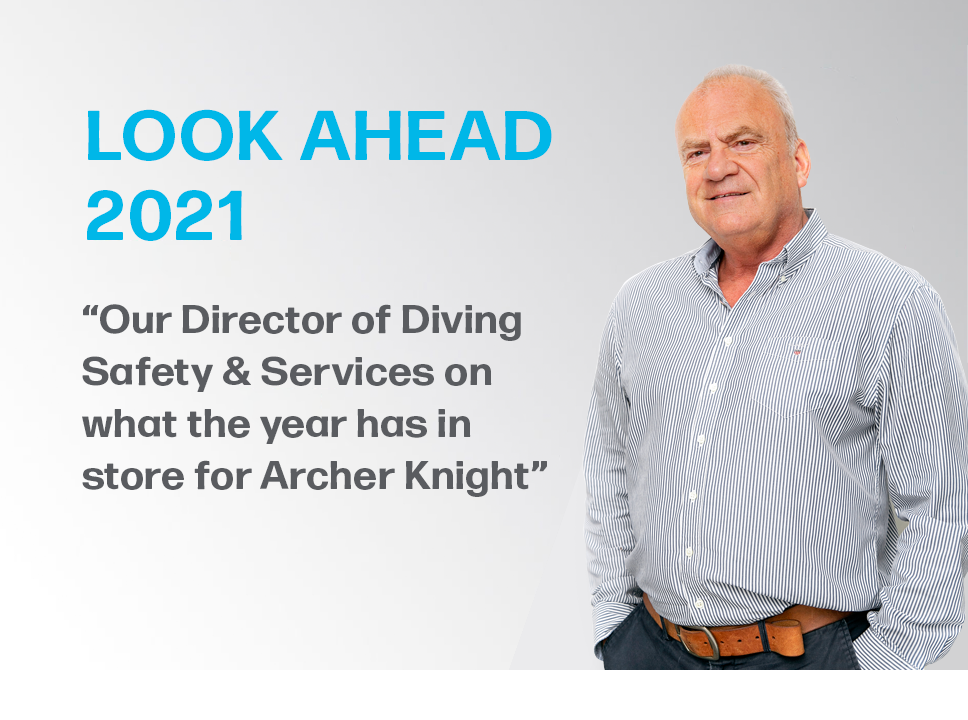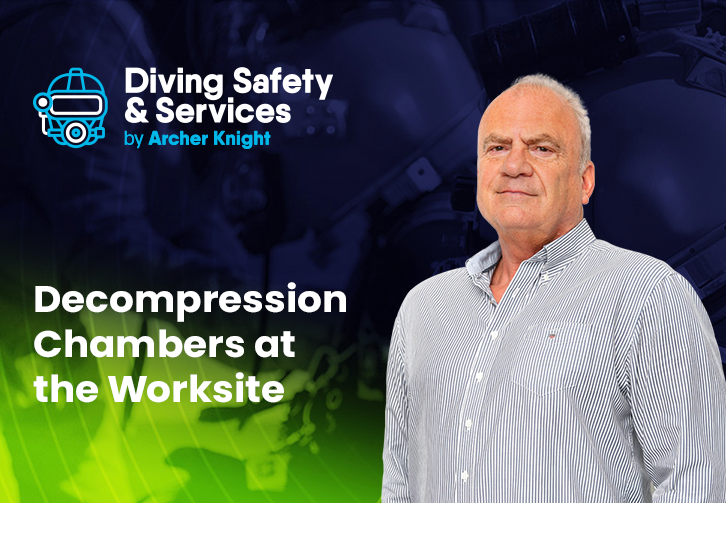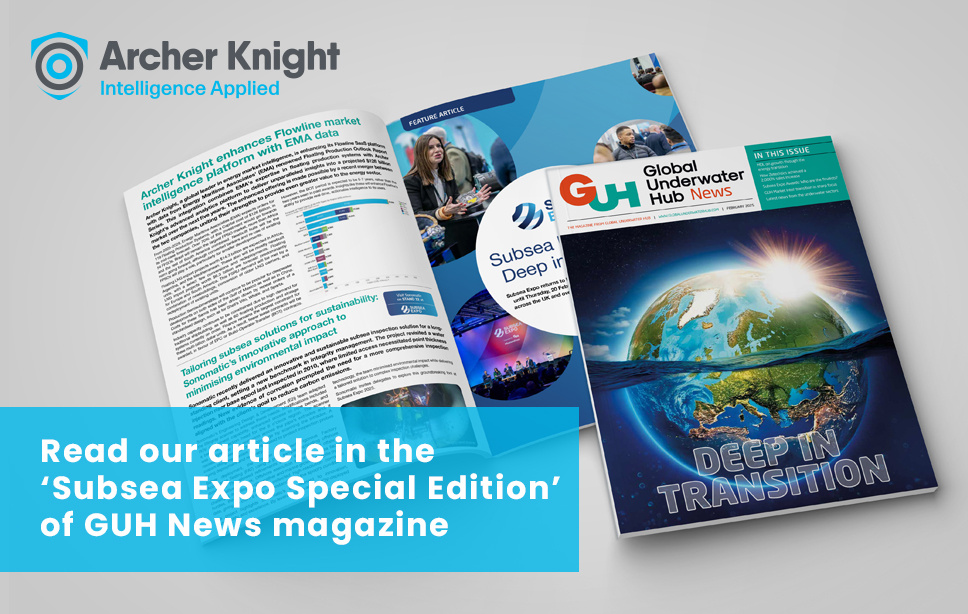5 min read
Follow on from "DDC’s AT THE WORKSITE…HAVE WE GOT IT RIGHT?" article
![]() Archer Knight
:
December 8, 2022
Archer Knight
:
December 8, 2022

My previous article, “DDC’s at the worksite….Have we got it right” received many positive comments, (thanks to you all) concerning whether or not having a six hour time to treatment plan was introducing unnecessary risk, under certain criteria for the Inland/Inshore diving Industry, since clearly, any diver suffering from a serious DCI is not receiving the immediate treatment and care required whilst being transported to a DDC facility, which could be up to 6 hours travelling time away, it might even require the use of air travel which introduces further risk.
Specialist hyperbaric medical practitioners have a view on this risk, as do the offshore diving community, where immediate recompression is always the first response for any diver even just suspected of displaying any DCI symptoms, so consider;
- Do divers generally feel safer with a DDC at the worksite ?
- Do divers review the evacuation plans in place at an Inland/Inshore diving worksite ?
- Are the evacuation and time to treatment plans included within the diving worksite emergency response documentation?
- Has it been assessed in the Project Risk Assessment?
- Has the actual plan been tested with an exercise or timed and controlled drill ?
- Have the DDC Operators been competence tested and issued with a LoA ?
- Do divers simply assume that everything is in order, tyres kicked ?
So what is different between Inland/Inshore diving and offshore diving?
I’d really appreciate your comments here.
This (in my opinion) failure to correctly recognise the risks associated with delayed recompression brings me to my next subject.
- What other industry are you aware of where an inexperienced, no-competence measured individual, can be put in charge of someone’s life without the correct checks and measurements being carried out?
I’ve said for many years and will continue to do so, a certificate does not equate to experience based competence, it is just a piece of paper and in many cases is merely proof of a course attendance.
LEWIS BEDDOWS UPDATE
Almost every day someone asks me how Lewis is getting on. It means more than both of us can express in words, when they do, thank you, all.
We are now approaching the fourth year of Lewis’ injuries, December 9th 2018, four years of uncertainty, pain, frustration, depression, fear and everything else that comes with such a life changing incident.
I am not going to rant on about the assurance mal-practice, duty of care negligence, incompetence, failures and weaknesses, ineptitude, dive-log cover ups and other dubious practices that have cost Lewis his career and could have cost him his life, I have done all of that these past four years, the legal process continues, slowly.
What I would say is that there are significant lessons to be learned from this incident, that could prevent something similar happening to another young diver, Lewis’ life has stood still for four years now, avoidably injured at 23, now 27 and with an uncertain future, he has shown such amazing strength in dealing with what happened to him, I can only be extremely proud of him, no longer a young diver but a man facing serious challenges in his life as a consequence of the negligence of others.
Sincere thanks from both of us go out there to all of you who ask after him, how he is progressing and offers of support, this means a lot to us.
Many of the subjects that I touch upon in this article are all connected in one way or another.
Have we got it right ?
What happens when we do not get it right ?
Where is the safety net out there that can help when it all goes wrong?
Having the right media platforms to be able to make a difference, change the norms and get commercial diving into a safer and better place is so important, but without a OneTeam Ethic and approach, this will not work.
Speaking up for safety, safety is everyone’s responsibility, having the determination to seek help when it feels that there is none out there.
There is somewhere to go to seek help, in our case it was the support of our Hyperbaric Medical Specialists, The Brain and Mind Clinic in London and the Norfolk Care and Crisis Team, now we are seeing anonymous, independent offers of help to discuss the mental health challenges of commercial divers, it just requires the determination to make that step and not be in fear of NRB as a consequence.
For too long, commercial divers have suffered by being the collateral damage of uncaring and indifferent employers, too scared to speak up for safety because their livelihoods could be taken away, sure, life does not come with guarantee’s but its time to start walking the walk where divers are concerned, how many times do we hear about the right for everyone to be able to return home unharmed at the end of their shift or tour to their loved ones ?
I know a few who have not been able to do that, including Lewis who spent a week in hospital post incident event and could barely walk or stand unaided when he was discharged.
This leads us into my next subject, the GDSN.
GLOBAL DIVING SUPPORT NETWORK
Thegdsn.com continues to receive a broad spectrum of CONCERNS from USERS at International on and offshore managed and diving worksites, the Administrators of the site thank all the USERS for their continued support.
The site is managed in a confidential and secure way, if you have not already had a look at the site, then please do have a browse.
It is simple, straightforward and basic, it is a confidential reporting tool for the Diving Community, if you have a CONCERN, fill out the Forms and the GDSN will do the rest.
Your CONCERNS are logged into the data-base, timed and identified with a unique user number, if the CONCERN develops into anything more serious then proof of the CONCERN is recorded for further reference.
With just two Administrators, the capability to do more than just be a confidential reporting tool is difficult at this time, however, the concept works, it has seen a lot of utilisation and will remain in place to support the diving community, the licensing and other costs are met by the two Administrators who are both passionate about continued diving safety and improvements and the reduction of diving activity incidents.
We experienced reluctance by diving personnel at the outset to use the GDSN, this reluctance was based upon a fear of retaliation, as a reporting tool, the GDSN site is safe and secure but we can only make this process work for you whilst you buy into it.
See something that is not as it should be……….Report it. Because if you don’t, there remains the risk of escalation and someone may get hurt.
This leads me into the final subject of this article and is connected to the discussion points above.
JANICE DOUGLAS
You may have seen some posts on Linked-In from Janice Douglas, Director of Human Factor Matters, regarding serious mental health issues and the work that she has been involved in over the years.
I met up with Janice a few weeks ago to learn more of what she plans to do around the commercial diver mental health issues piece, I was impressed and would recommend anyone with personal Mental Health issues or even uncertainty in their lives to consider getting in touch with Janice.
All too often we bury these problems in a dark corner of our sub-conscious and pretend that they do not exist until that pit of dark despair appears without warning.
For me, Mental Health issues was always something that happened to someone else, Lewis, was seriously injured whilst diving and plunged into that pit of dark despair, then it becomes very real.
I can understand the reluctance of divers to share these issues, we had a similar problem getting the GDSN accepted across the diving Industry until the absolute confidentiality of the Reporting Tool for Divers and associated personnel was fully accepted as something that could be positively helpful.
Even if you are not sure if it is right for you, get in touch and test the depth.
Finally, I am currently reading through a Report from the RMT, “DIVING OPERATIONS, THE UNTOLD STORIES 2019-2022” I would absolutely recommend anyone with a genuine interest in the current problems in our commercial diving industry and the challenges that we face to take a read through this.
I have it and I am allowed to share it. Get in touch. divingta@archerknight.com
Next week I shall be releasing another article that will include my thoughts and updates around a variety of different subjects, including but not limited to;
Aquaculture
Ship and Rig Husbandry
IOGP RP 431

11 min read
Decompression chambers at the diving worksite. Have we got it right?
Deck decompression chambers (DDC’s) at the surface supplied diving worksite has often been quite a contentious issue during my long career in...

1 min read
Look Ahead 2021 – Derek Beddows
Our Director of Diving Safety and Services on what the year has in store for Archer Knight. Diving is an integral part of the subsea...

3 min read
Decompression Chambers at the Worksite
Archer Knight's Director of Diving Safety & Services, Derek Beddows, is passionate about ensuring that all divers, regardless of the location of...



